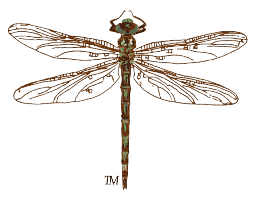Birding in the Age of AI: Friend or Foe
Opinion by Michael Meves
Merlin’s bird app can be used to identify bird songs and calls.
Photo courtesy Michael Meves
It's the year 2035. A drone travels through Charro Ranch Park, collecting data on all the wildlife it sees and hears. The cameras on the drones take extraordinary pictures, and their microphones pick up every sound. Birders no longer need to visit the park for bird surveys; they can just download the reports and photos from home. The last paper birding guidebooks were printed several years ago. Binocular companies are going out of business. A few senior citizens can still recall bird calls, but they are becoming fewer and fewer—like the dwindling number of people who speak a dying language.
Does this sound unrealistic? Maybe not, considering how information technology and artificial intelligence are changing our lives at an ever-increasing pace.
Now imagine you're a birdwatcher in the 1970s. There's no internet, no digital photography, and no smartphones. To help identify birds, you carry a paperback field guide. You use a paper checklist to record what you see. Your only available record of the birds at your site might be a handwritten list posted on a bulletin board. If you’re unsure about a bird you just saw, you take a picture—on film—and wait to have it developed, hoping the photo turns out well enough for further research.
Today, birding is a growing hobby, and the experience has been enhanced by apps like Merlin’s sound and picture ID. The technology makes bird identification easier and might even inspire someone new to try the hobby. It helps birders identify the sounds they hear. Depending on how they use it, the app either does all the work or helps them learn the calls. But at some point, does the technology become so advanced that it takes the challenge out of the hobby and replaces the need for bird surveys?
The app eBird was launched in 2002. It allows users to record the birds they see, including numbers and species. It has essentially replaced paper checklists and keeps a record of each user’s “life list” (the record of species a birder has seen in their lifetime). Beyond eliminating pencil and paper, it offers a massive global database of bird sightings, which provides valuable data for conservation. Every bird is tracked by date, time, and location. All the data is easily accessible to any user. You can even sign up for a “rare bird alert” to be notified about unusual sightings in your area. There’s now even a bird feeder with a built-in camera that identifies the birds visiting and sends a list to your app.
In 2021, Merlin released its sound ID feature. The app listens to bird sounds and identifies the species. You can also take a picture, and the app will help with visual ID. This feature came out just as I was becoming more proficient at identifying bird calls. It made me realize that my hard-earned skill was suddenly less essential—because now my phone could do it. After years of building my listening abilities, suddenly a novice could perform just as well using an app. It made me wonder: will technology diminish the joy of birdwatching?
Information technology and AI have their benefits and drawbacks. On the positive side, the volume and speed of data collection can significantly aid bird conservation research. Remote cameras can also assist people with mobility challenges who can't explore parks easily. On the downside, there’s a growing concern that AI could replace human experts and lead to job loss. Sociologists worry about what happens to mental health and self-worth when AI does all the work and we lose our sense of purpose. Expert birders who once conducted site surveys might now be replaced by drones.
So how do I reconcile the drive to improve my bird ID skills when technology makes them feel unnecessary? For me, the answer is clear: I’ll keep learning. Despite the presence of AI aids, I’ll continue to study bird IDs and calls because it brings me joy. The personal challenge and the satisfaction of progress are what make birding meaningful for me—even if those same skills can now be replaced by an app. If birding means walking through a park while an app does all the work, I’ll lose interest. Besides, it’s healthier to stay mentally and physically active. If we give up everything AI can do for us, we risk losing our sense of purpose and letting our minds stagnate. Doctors emphasize that as we age, we must keep our brains active to maintain mental sharpness. One study showed that experienced taxi drivers who memorized city streets—rather than relying on navigation apps—were less likely to develop dementia.
So here’s my advice: resist the temptation to let your smartphone do all your thinking. Do some math in your head. Drive somewhere without using GPS. Memorize a phone number. And keep recognizing those bird calls—even if your phone can do it better.

